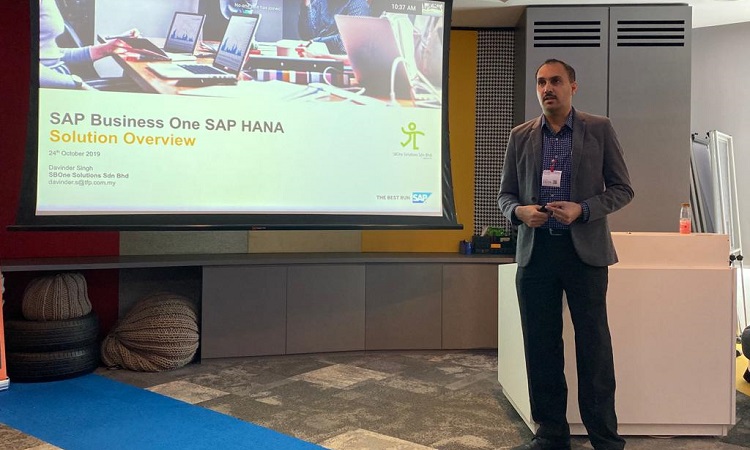Renowned Malaysian solutions provider TFP Solutions Berhad has urged local businesses to accelerate their digitisation efforts so as to capitalise on latest technologies for greater profitability, productivity and operational efficiencies in the Fourth Industrial Revolution (4IR).
Its Vice President of the SBOne division, Davinder Singh, said that the secret to success in the 4IR is to be agile with strategic data-driven decision-making abilities, with the capability to respond promptly to changes happening in the market.
“Technology has become such a force of disruption that the landscape of entire industries can change in the blink of an eye and does so continuously. Companies that resist this change, or are not agile enough to move with the tide, will be left behind, ” said Davinder.
However, he qualified that such change offers opportunity for new and eager companies to harness and latch upon.
“Consider well the changes at hand and decide how best to embrace the change for success,” he emphasised.
To Davinder, technology no longer is the backroom support for business.
“Technology is business. As we move into the 21st century, it is clear that disruption is going to come thick and fast. Who could imagine that a company like Uber could go from a startup to completely disrupting the taxi industry across the world? And who would had thought that Grab would upseat Uber in this part of the world?”
“Such fundamental change at this pace is only possible with the technology that has underpinned it. Incorporating future proofing into ongoing business review processes is a great way to stay ahead of the curve,” said Davinder.
He also explained that the 4IR can be described as the advent of “cyber-physical systems” involving entirely new capabilities for people and machines.
“The 4IR represents entirely new ways in which technology becomes embedded within businesses and societies,” he said. “Countries such as the US and Germany are actively responding to the waves of technological revolution. They have been demonstrating exceptional capacity to thrive in this era of digitisation.”
“In the past decade, the rate of adoption of new technologies has accelerated. Technology is changing the rules of business and disruption is becoming the norm.
“This will accelerate in the 2020s and as business leaders we need to absorb, understand and adapt. If we don’t, we will be left behind,” said Davinder.
From his observation of the local SME community, some traditional businesses are starting to feel the pressure to digitise their business.
“With technology levelling the playing field, younger organisations can have stronger digital capabilities and strategies to engage customers, partners, and employees much better than a multi-national company can,” he said.
“Harnessing digital technology enables companies of all sizes to gain footholds in new markets and provides the opportunity to establish a prominent global presence to realise their potential of becoming significant players in international markets.”
When asked about the TFP Group’s plans to educate the SME community, Davinder replied that , together with SAP Malaysia, the company is currently working with organisations like SME Corp to educate the SME community on the importance of technology.
“Our solutions based on the SAP B1 platform aims to simplify processes for them so that these SMEs become more productive,” he said.
More than anything else, Davinder emphasised the need for local businesses to “future proof” their business models.
“Accept that change is coming, embrace the disruption early, understand how it will change your own playing field and then build your game plan,” said Davinder, adding that the four critical aspects of future-proofing comprise social, mobile, analytics and cloud computing.
Davinder was speaking at an event entitled “Ease your SAP Business One Migration with Google Cloud Platform” organised by Matrix Connexion held at Google’s office in Kuala Lumpur.
Later, Chief Operating Officer of Matrix Connexion, Aaron Chong (left in main pic with Davinder), shared his insights on how to migrate and run SAP on Google Cloud Platform in a conducive manner.


